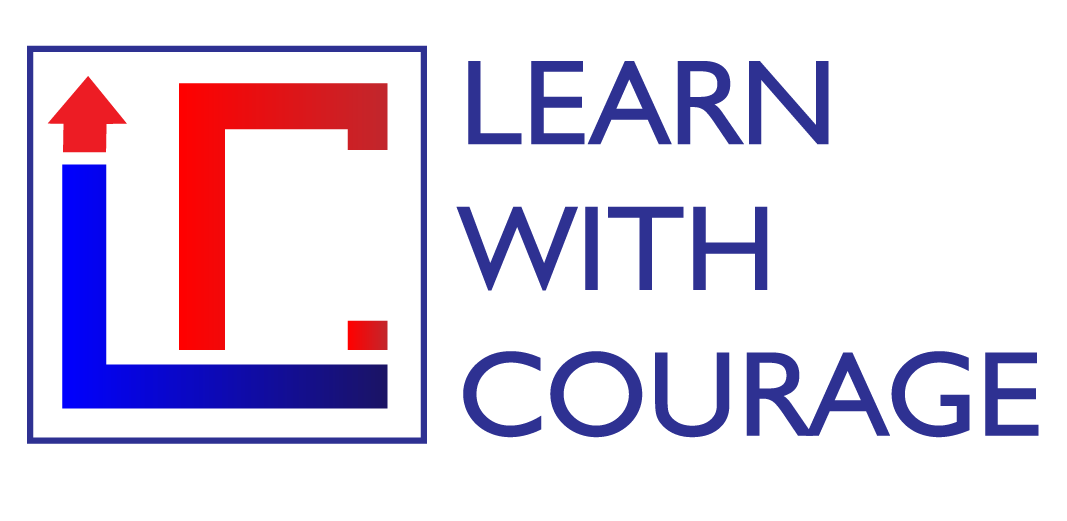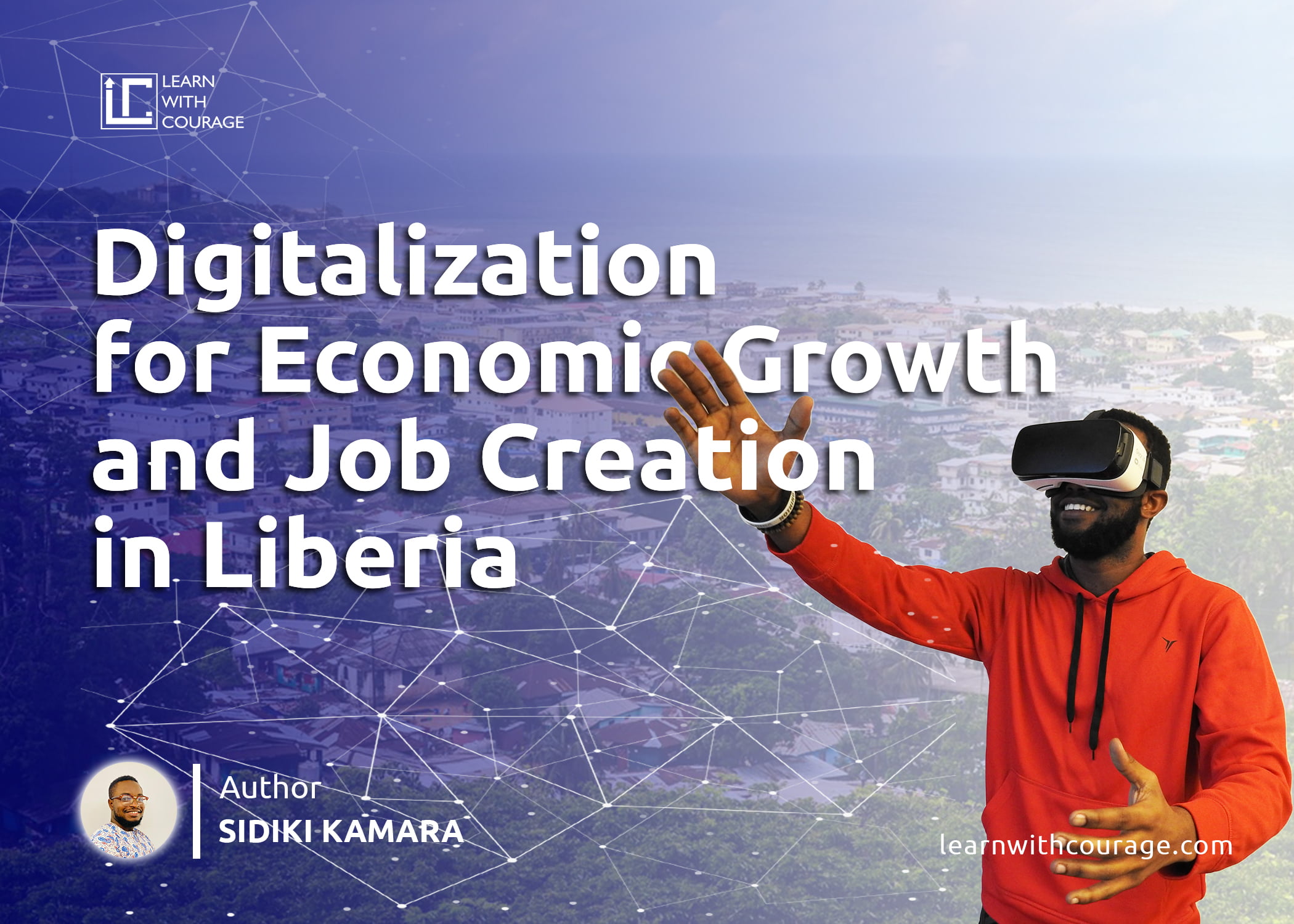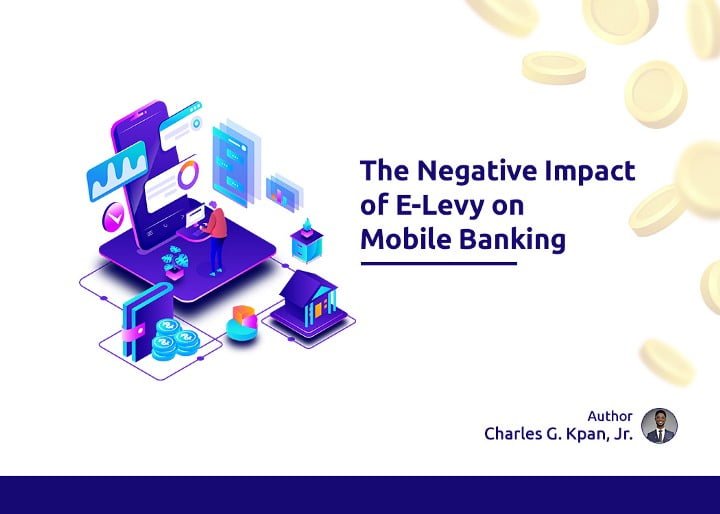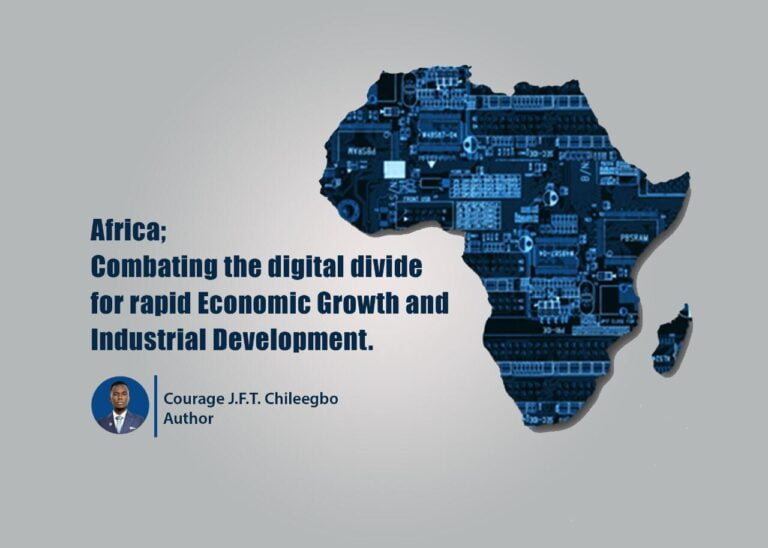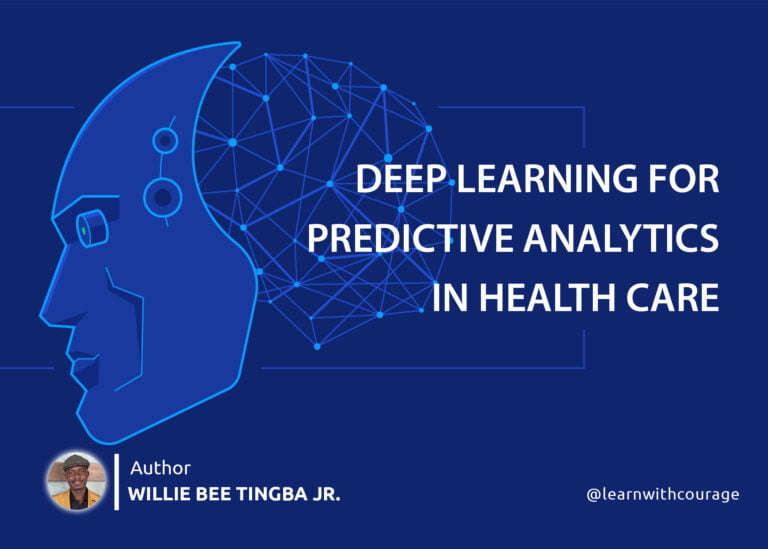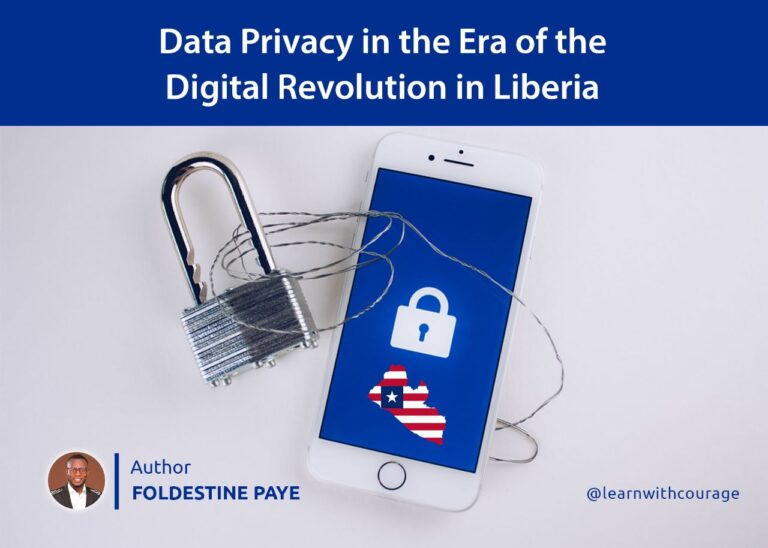Digitalization for Economic Growth and Job Creation in Liberia
The history of digitalization dates back to the early 19th century when Charles Babbage developed the first mechanical computer. This machine was able to perform basic calculations and store data. In the 1940s, computers began to be used for more complex tasks such as code breaking and weather forecasting. The 1950s saw the development of the first commercial computers, which were used for business applications such as payroll and inventory management. In the 1960s, digital technology began to be used in consumer products such as televisions and radios.
This led to the development of digital audio and video recording devices, which allowed people to record music and movies on magnetic tape or discs. In the 1970s, personal computers were introduced, allowing people to store data on floppy disks and access information from remote locations via modems. The 1980s saw a rapid expansion in digital technology with the introduction of CD-ROMs, fax machines, cellular phones, and other devices that allowed people to communicate more easily than ever before.
The 1990s saw a further expansion in digital technology with the introduction of the internet and the World Wide Web. This allowed people to access information from all over the world at any time. Today, digital technology is used in almost every aspect of our lives, from banking to entertainment.
To create a common information hub that would ultimately develop into the Google platform, Google worked with several organizations in 2004. By 2007, 94% of all news was already accessible online, and Estonia was the first country to permit electronic voting for parliamentary elections (Base22, 2021). Bitcoin was first introduced in 2008 as a digital, decentralized, and cashless means of payment, at the same time as internet advertising started to significantly outperform print advertising.
Amazon sold more books online than any other store in 2012, which helped to add to the $1 trillion annual output of the first e-commerce platform (Duggan, 2022). Revenues from watching movies and listening to music online started to be generated in 2014. In the summer of 2014, there were 3 billion users on the internet. Facebook, Twitter, and Instagram are just a few examples of the digital social media platforms that have evolved and gone digital since 2015. As a result, products and services are now efficiently and conveniently available (Base22, 2021).
Digitalization for Economic growth
Digitalization is important for economic development because it can help to increase efficiency, reduce costs, and create new opportunities for businesses. Digitalization can also help to improve access to information, facilitate communication and collaboration, and enable businesses to reach new markets. Additionally, digitalization can help to create jobs and spur innovation by providing access to new technologies and tools. Finally, digitalization can help to improve the quality of life for citizens by providing access to services such as healthcare, education, banking, and transportation.
In recent years, digitization – the adoption of connected digital services by consumers, enterprises, and governments – has emerged as a key economic driver that accelerates growth and facilitates job creation. With a sluggish global economy, digitization can play a crucial role in assisting policymakers to spur economic growth and employment. Despite the unfavorable global economic climate, strategists and econometricians (2011) estimate that digitization contributed US$193 billion to world economic output and created 6 million jobs worldwide (PricewaterhouseCoopers, 2013).
Digital Liberia
Through the establishment of mechanisms to ensure good governance, transparency, and citizen engagement, Liberia joined the Open Government Partnership (OGP) in September 2011. It was emphasized in the OGP’s first action plan that citizens’ access to information should be improved, citizens’ participation should be increased, public officials must be held accountable, and information and communication technology (ICT) environments should be improved (including access to e-Government services).
Liberia’s Population in 2022
Liberia’s total population was 5.24 million in January 2022. According to dataReportal (2022), Liberia’s population increased by 124 thousand (+2.4%) between 2021 and 2022. In January 2022, Liberia had 1.15 million internet users (DataReportal, 2022). The internet penetration rate in Liberia at the start of 2022 was 22.0 percent. According to Kepios’s analysis, Liberia’s internet users increased by 27 thousand (+2.4 percent) between 2021 and 2022. For context, these user statistics show that 4.09 million Liberians did not have access to the internet at the beginning of 2022, or 78.0 percent of the country’s population.
Internet users in Liberia may have anticipated the following internet connection speeds at the beginning of 2022, according to data released by Ookla:
- Median fixed internet connection speed: 9.40 Mbps.
According to Ookla’s data, fixed internet connection speeds in Liberia rose by 2.77 Mbps (+41.8%) in the year leading up to the beginning of 2022.
Social media statistics for Liberia in 2022
In January 2022, Liberia had 748.2 thousand social media users. Social media users in Liberia made up 14.3 percent of the total population at the start of 2022, but it’s important to note that they may not represent unique individuals. According to Kepios, analysis reveals that Liberia’s social media users increased by 78 thousand (+11.7 percent) between 2021 and 2022. In Liberia in 2022, Facebook had 709.7 thousand users, Instagram had 92.1 thousand, Facebook Messenger had 105.6 thousand, LinkedIn had 120.0 thousand, and Twitter had 17.3 thousand users.
Both the globe and the economy have gone digital. The traditional economic processes, goods, and services have been converted into digital forms to create the digital economy. It is supported by technology and is based on the internet (Pahwa, 2022). The economy has undergone a digital transformation that has led to the creation of new business models, products and services, and operational procedures. This digital economy is growing swiftly and is expected to continue doing so in the future (Pahwa, 2022).
Digital Revolution in Liberia
As part of the ongoing fight to go digital as a strategy to make the economy work for everyone. Thus, Liberia has embraced this revolution, and it has brought advancement and progress to many sectors, such as education, economy, government, health, agriculture, and others (African Leadership Magazine, 2022). After decades of civil unrest, the Liberian educational system is beginning to improve. The long-lasting effects of two civil wars, compounded by the shutdown of schools during the Ebola outbreak in 2014–2015, left Liberia with a brittle educational system and an even weaker infrastructure for information and communication technology (ICT) (African Leadership Magazine, 2022).
This is why the USAID Digital Liberia and e-Government Capacity Building Activity were launched. By enhancing nationwide connectivity and access to information, the project contributed to resolving these problems. The University of Liberia and Digital Liberia collaborated to create a thorough connectivity strategy. In 2019, before the COVID-19 pandemic brought the globe to a halt, Digital Liberia assisted the University of Liberia in expanding online learning possibilities for students by creating a new online platform called UL Online. This proves that improved access to the internet is already paying off. It assisted in educating its academics on how to use Moodle in their classroom instruction (Janet Abena Quainoo, 2022)
Initiatives like the Liberia Research and Education Network (LRREN) are crucial to the Liberian government’s e-Government strategy for bolstering (ICT) infrastructure and enhancing the accessibility of (ICT) services in the country. These initiatives are part of a broad strategy to increase (ICT) capacity in Liberia. The government of Liberia must heavily invest in ICT infrastructure and data literacy skill training to address the country’s low employment rate; the sparse economic key complement to such interventions is the adoption of an open data initiative. With the support of development partners like the World Bank and USAID, these investments are being made to increase the economy, boost trust in government, and create greater accountability.
The role of Policymakers and Recommendations for Digitalization of the Economy
There are three main ways that policymakers can harness the effects of digitization beyond their current roles of setting policies and regulations.
- To maximize the impact of digitization, they should first develop digitization plans for targeted sectors.
- As a second step, they should encourage the development of capabilities and enablers for achieving these digitization plans.
- Lastly, policymakers should work together with industry, consumers, and government agencies to create an (ICT) ecosystem that encourages greater uptake and usage of digital services.
Politicians have worked to create and preserve this advantage in important areas of their economies ever since Adam Smith put forward the thesis of the absolute advantage gained by a nation in manufacturing a good or service. A crucial competence that supports all other national economic initiatives, digitization is emerging as a new technique to create and maintain such absolute advantages and, in some situations, even to claim the “right to win” and outperform the competition in particular industries.
Developing digital markets and accelerating digitalization can have a big positive impact on the economy and society as a whole. The potential benefits of digitization include increased productivity, additional career opportunities, and improved quality of life for all people in society.
References
African Leadership Magazine. (2022, September 12). Africa: The Liberian Digital Revolution. African Leadership Magazine.
- https://www.africanleadershipmagazine.co.uk/africa-the-liberian-digital-revolution/
- Base22. (2021, May 26). The History of Digitization | Base22. Base22; Base22. https://base22.com/blog/the-history-of-digitization/#:~:text=Digitization%20got%20its%20start%20as,people%20understand%20the%20binary%20system.
- DataReportal. (2022, February 16). DataReportal – Global Digital Insights. DataReportal – Global Digital Insights. https://datareportal.com/reports/digital-2022-liberia
- Duggan, W. (2022). The History of Bitcoin, the First Cryptocurrency. US News & World Report; U.S. News & World Report. https://money.usnews.com/investing/articles/the-history-of-bitcoin
- Janet Abena Quainoo. (2022, September 12). Africa: The Liberian Digital Revolution. African Leadership Magazine. https://www.africanleadershipmagazine.co.uk/africa-the-liberian-digital-revolution/
- Pahwa, A. (2022, April 13). What Is Digital Economy? – Importance, Types, Examples. Feedough. https://www.feedough.com/what-is-digital-economy-importance-types-examples/
- PricewaterhouseCoopers. (2013). Digitization for economic growth and job creation: Regional and industry perspectives. PwC. https://www.strategyand.pwc.com/m1/en/reports/2011-2014/digitization-economic-growth-job-creation.html#:~:text=Digitization%20%E2%80%94%20the%20mass%20adoption%20of,growth%20and%20facilitates%20job%20creation.
About the author:
Sidiki Kamara is a Bsc Student in International Business and Trade in Rwanda, Kigali. He is a social worker, social entrepreneur, business developer, and researcher. He’s also a co-founder of CYGEC IT SOLUTIONS, INC, and social media manager for Educate-Children Liberia.
